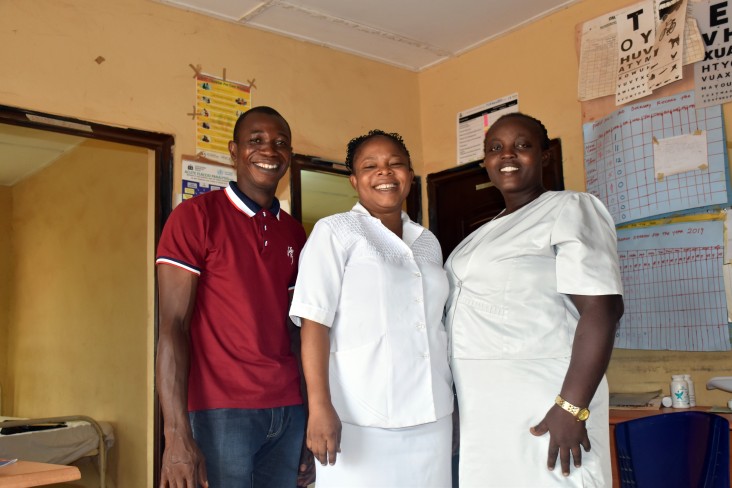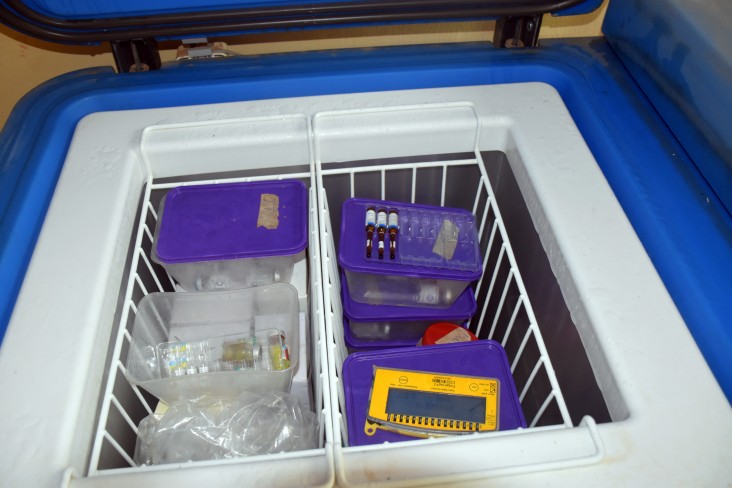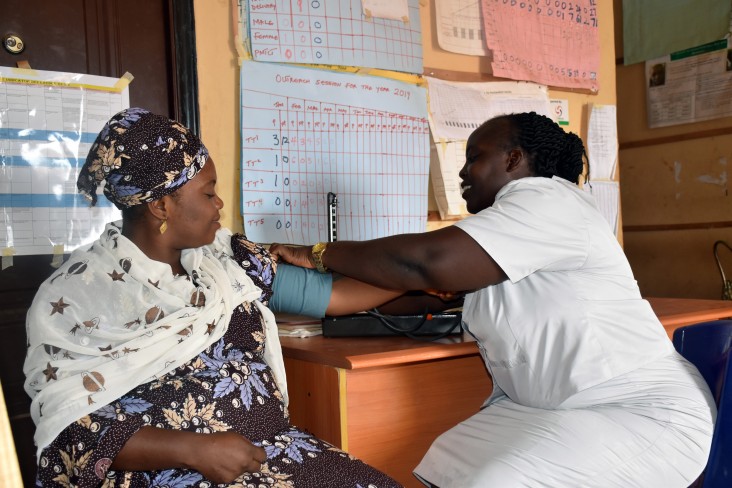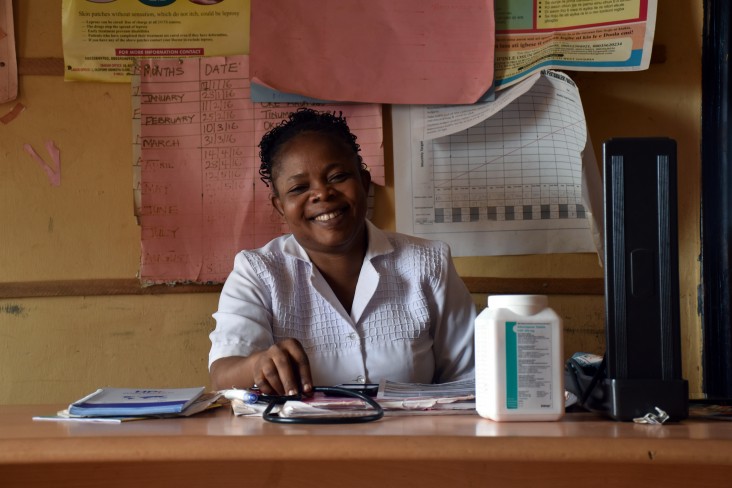- What We Do
- Agriculture and Food Security
- Democracy, Human Rights and Governance
- Economic Growth and Trade
- Education
- Environment and Global Climate Change
- Gender Equality and Women's Empowerment
- Global Health
- Humanitarian Assistance
- Transformation at USAID
- Water and Sanitation
- Working in Crises and Conflict
- U.S. Global Development Lab
Speeches Shim
An end to a four-year blackout provides a new lifeline to hundreds of patients at this rural Nigerian facility

Lack of adequate electricity hinders service delivery in most Nigerian primary health care centers (PHCs). PHC Alekuwodo in Nigeria’s Osun State is no exception.
Alekuwodo had been without electricity for four years, leaving the 16-person staff no choice but to rely on battery-powered devices while the surrounding community pulsed around them. The country’s primary health care system is strapped for cash and often struggles to provide even basic amenities and care.

Alekuwodo — which the Nigerian government commissioned nearly 15 years ago — averages 200 patients a week. The center offers a range of basic health care from routine immunizations to labor and delivery to malaria treatment. But, without electricity, the PHC has struggled to maintain an adequate water supply, store essential drugs, secure a night guard, or provide 24-hour care.
USAID partnered with the National Primary Health Care Development Agency, the National Health Insurance Scheme, and the Federal Ministry of Health, to conduct a four-day workshop for officers-in-charge and Ward Development Committee (WDC) chairpersons from seven PHCs, including PHC Alekuwodo.
The April workshop helped participants better understand their roles and responsibilities in implementing Nigeria’s Basic Health Care Provision Fund, a government reform program aimed at providing access to high-quality and affordable health care, especially to the rural poor.
The workshop spurred action. WDC Chairperson Adeniyi Adesoji Thomas and Alekuwodo’s WDC members met with the facility staff to discuss the barriers hindering the health center’s ability to provide adequate services. Chief among them — the lack of electricity.
That meeting galvanized electric company officials, community leaders, and local politicians. In less than a week, electricity was restored to PHC Alekuwodo for the first time in four years.

In addition to the electrical supply, PHC Alekuwodo hired a night guard, and is exploring ways to improve their storage of essential drugs and the possibility of offering 24-hour health care services. With these changes, community health workers at the facility have a renewed drive to deliver high-quality care.
“We are so happy! For the past four years, we have had no electricity, and we have used our lamps to work. In fact, at night, we usually go to neighbors’ houses to charge them. Now, there is light in the facility, and this will make our work easier and lively,” said Titi, PHC Alekuwodo’s officer-in-charge.

WDC members also expressed their gratitude to Health Policy Plus (HP+) project for teaching them how to take ownership of the PHC and to advocate for and secure high-quality health care for their community.
“I am happy with HP+ for the training they provided for us,” said Thomas, the WDC chairperson. “It has enabled us to know our roles and responsibilities, and what we can do for our facility and the community.”
PHC Alekuwodo is one of many PHCs that have benefited from HP+. With a mandate to strengthen Osun State’s governance, stewardship, and ownership of critical health financing reforms, HP+ is working with other Ward Development Committees to improve their PHCs and ensure high-quality health care is delivered to their communities.
About the Author
The USAID-funded Health Policy Plus (HP+) project contributes to optimizing health resources and fostering more equitable, sustainable, rights-based health services, supplies, and delivery systems. Follow HP+ @HlthPolicyPlus.

Comment
Make a general inquiry or suggest an improvement.